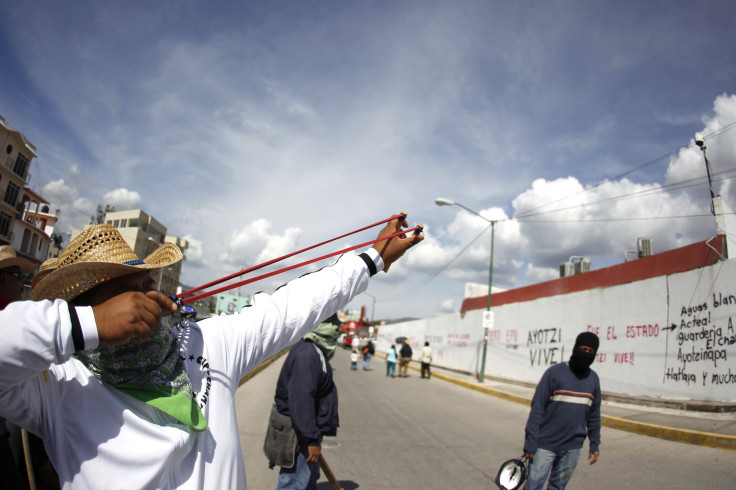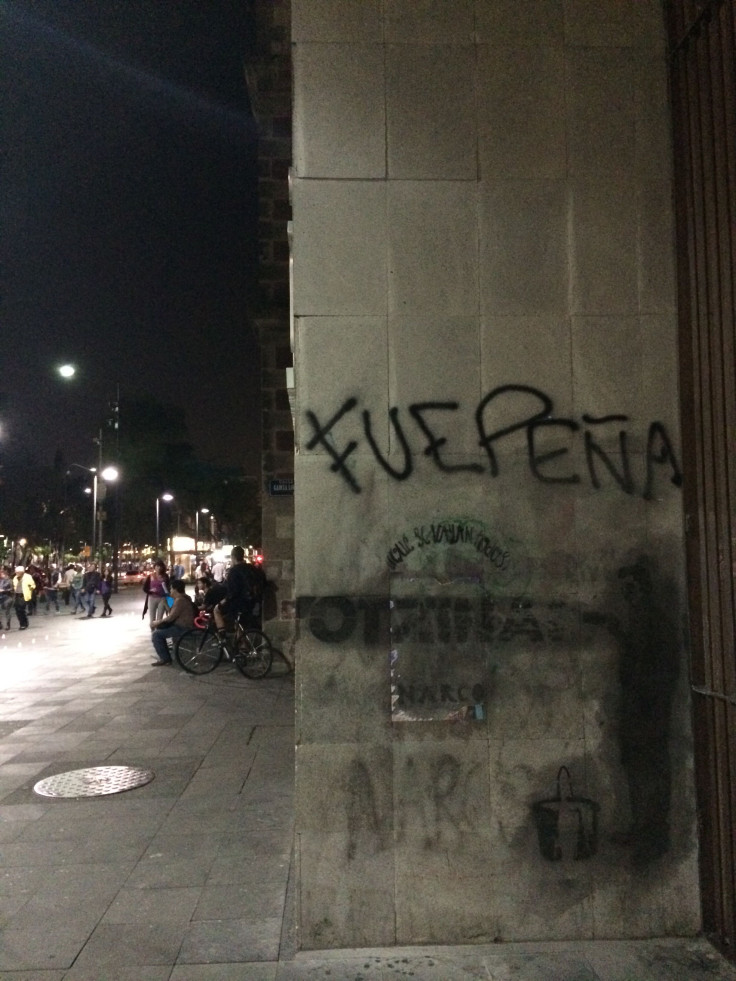As Mexicans Lose Faith In President, Peña Nieto Proposes Changes To Justice System Amid Civil Unrest

MEXICO CITY -- The Mexican government said it will propose sweeping changes to the country's justice system this week, as students in the street protest widespread corruption and outrage grows over continued violence and political impunity under President Enrique Peña Nieto's administration. "You have to fix what's not working," Secretary of the Interior Miguel Ángel Osorio Chong said in a Monday radio interview about the proposal, which will be unveiled Thursday.
When Peña Nieto took office nearly two years ago, he promised to stem the bloodshed and instability that plagued his predecessor, Felipe Calderón. During his 2012 campaign, the then-governor of the state of Mexico pledged to "undertake a more effective security policy to reduce violence: no more homicides, no more kidnappings, no more extortions." He gave the speech in Tamaulipas state, where two former governors are accused of aiding drug cartels.
But statistics show the president is far from reaching those goals, and people in the capital city are increasingly airing their discontent with Peña Nieto's leadership. Graffiti and paper signs that plaster the megacity of 20 million blame the president for the insecurity, even accusing him of indifference to the disappearance of 43 rural students in late September. "Assassin," red spray paint reads. "Peña did it," another tag says.
"People are very bothered and very indignant," Fernando Ríos, who heads the human rights network La Red TDT, said Monday during an interview.

While homicide rates have dropped about 29 percent in the first half of 2014 compared with the same period in 2012, reports of other crimes are on the rise. Kidnappings, extortions and muggings were all higher in 2013 than the year before, according to the National Statistics Institute.
Politically motivated abuses are also higher, human rights groups say. In Peña Nieto's first 18 months in office, 669 people were arbitrarily detained for political reasons, compared to 999 detentions during Calderón's entire six-year term, according to a report by Comité Cerezo México. The researchers documented 55 cases of forced disappearances under Calderón and 29 cases already under Peña Nieto -- a figure that doesn't include any of the 43 missing students.
"We can't put up anymore with what this president is doing," Zayebri Arellano, a 21-year-old university student, said Sunday night. She was holding up a string of posters near the central Zócalo square that asked, in Spanish, "What if your son were the 44th?" and "What peace is the government talking about?" She said that she and fellow activists aren't necessarily calling for the president's ouster, but that they want a fundamental change in Mexican politics.
Adding to citizens' discontent are recent allegations of corruption involving Peña Nieto and his wife Angélica Rivera. Reports surfaced earlier this month that the couple's $7 million mansion was linked to a company that won several government contracts while Peña Nieto served as governor. The firm, Grupo Higa, was also part of a Chinese consortium chosen to build a $3.7 billion high-speed rail project in Mexico.
José Rosende, a taxi driver and former police officer, said the scandal signals to him that the president "doesn't care about people, he just wants to make himself rich." Even so, Rosende said he wasn't too surprised by the news. "There's always been corruption in Mexico, and there always will be."
Peña Nieto and Rivera have denied any wrongdoing when it comes to the seven-bedroom residence. In response to the scandal, however, Rivera said she would sell the "White House," which she says she purchased independently using her earnings as a former soap opera actress. Peña Nieto also insinuated that Aristegui Noticias, the news organization that investigated the house, was attempting to capitalize on the growing civil unrest that began over the disappeared students.
Juan Omar Fierro, a radio reporter for Noticias MVS, said he found the president's comments unsettling. "I felt really vulnerable when I heard that," he said. "It makes me feel like there are topics we can't approach, because it could upset the federal government.... It worries me that they consider journalistic work to be a form of destabilization." Mexico is one of the world's most dangerous countries for journalists, according to Reporters Without Borders, with most of the murders and harassment concentrated in areas with heavy drug cartel influence.
Ríos, the human rights advocate, said he hopes Peña Nieto and Mexican politicians will seize this moment of civil unrest to adopt the changes that president has said he'll make. "Right now, we believe there's a very important political opportunity to open up access to justice and truth," Ríos said.
© Copyright IBTimes 2024. All rights reserved.





















